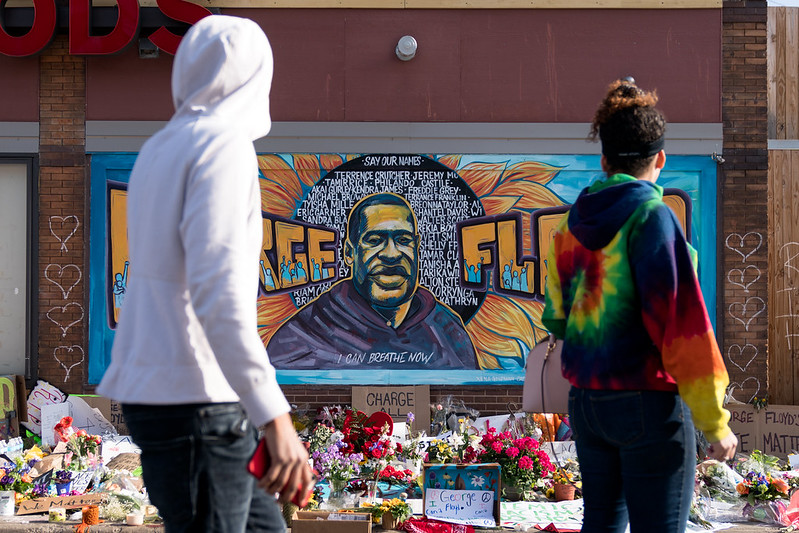
(Photo Credit: Lorie Shaull)
A group of UN rights experts have condemned America’s systemic racism and racial bias following what they term as the “lynching” of George Floyd and the outbreak of protests throughout America and across the world.
In a statement issued by the Office of the United Nations High Commissioner for Human Rights, they specify that the recent killing of African Americans by police officials has been done with impunity and involved “disregard or depravity toward human life” as well as “the use of public spaces to assert racial control” each characteristic of lynching.
A history of injustice
In detailing the historic injustice Black Americans have suffered, the UN specifies that:
“The origin story of policing in the United States of America starts with slave patrols and social control, where human property of enslavers was ‘protected’ with violence and impunity against people of African descent. In the US, this legacy of racial terror remains evident in modern-day policing,”
The UN experts statement maintains that despite 99 years passing since the massacre in Tulsa, “African Americans continue to experience racial terror in state-sponsored and privately organised violence”.
The Black community in America continue to suffer from poverty, state violence and disproportionately impacted by the COVID-19 virus. The UN reminds us that those of African descent in America are disproportionately affected and have a lesser ability to quarantine.
Police accountability
The UN warns that there is little hope of accountability for police brutality in America:
“Given the track record of impunity for racial violence of this nature in the United States, Black people have good reason to fear for their lives”, the statement reads.
In 2019, 1098 people were killed by the police in the US. Close to a quarter of those killed were Black Americans despite only comprising 13% of the population. Blacks in America are three times more likely to be killed by the police than White Americans. From 2013-2019, 99% of killings by police did not result in an officer being charged with a crime.
Concerns over police violence
Specific concerns have been raised over the militarisation of American police as well as increasing reports of attacks on protesters and journalists. These attacks have been bolstered by statements from the US President which has called for the deployment of the national guardian to put down the protests. The national guardian is already in active deployment in 15 US states.
The threats of violence from the US President “stand in stark contrast to calls for leniency and understanding which the Government had issued in the wake of largely white protests against COVID-19 restrictions on services like barbershops, salons, and spas”, the UN experts state.
The UN further reports that police have engaged in the “tear-gassing of peaceful protesters not involved in unlawful behaviour”.
Recommendations
The UN concludes its statement by calling for the implementation of the 2015 recommendations of the President’s Task Force on 21st Century Policing. This specifies a need to respect basic human rights and confront racial bias.
They further specify that this will require;
The ending of “policies facilitating qualified immunity, provision of military equipment to, and military-type training of police, no-knock warrants and use of non-uniformed police in citizen interactions. Finally, civilian oversight boards, mandated body worn camera use, de-escalation training, and independent review of all extrajudicial police killings would enhance both transparency and accountability”.
Read more from the OHCHR or and Mapping Police Violence.
